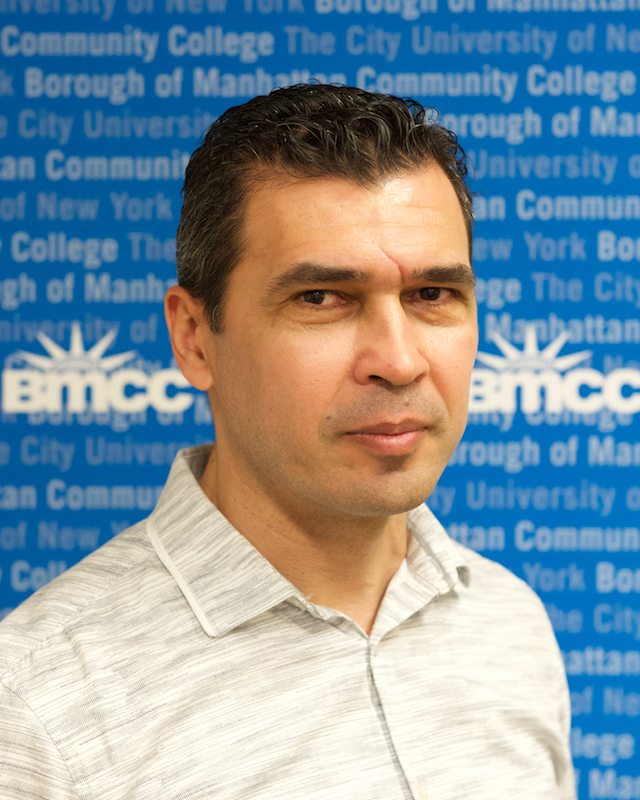Ilir Disha

Associate Professor
Social Sciences, Human Services and Criminal Justice
EMAIL: idisha@bmcc.cuny.edu
Office: N-662
Office Hours: M 01:00-04:00pm
Phone: +1 (212) 220-8000;ext=5332
Professor Ilir Disha is from Albania. He arrived to the United States via the Diversity Visa Lottery program in 1997.
Professor Disha completed most of his education in Tampa, Florida. He started at Hillsborough County Community College (HCC), from where he earned an Associate of Arts degree in Liberal Studies. Afterwards, he transferred to a liberal arts college, at the University of Tampa, earning a Bachelor of Science degree in Psychology. Then, continuing with graduate studies, he first completed the Masters of Arts program in Sociology from the University of South Florida (USF) and, later, was accepted as a graduate student in the doctorate program of Sociology at SUNY, Albany. He earned his doctorate degree in 2014 with specialization on immigration and crime.
Professor Disha believes education is important. It helps make us better human beings. He has experience teaching multiple courses in sociology and criminal justice at different educational institutions, ranging from two year colleges to liberal arts and research universities. He has varied interests. His research explores the college experience of criminal justice majors, hate crimes, and immigration-crime links. He enjoys teaching, researching, and guiding students through an important period of life.
Expertise
Crime and Victimization, Hate Crimes, Immigration Studies
Degrees
- B.S. Psychology, University of Tampa, 2002
- M.A. Sociology, University of South Florida (USF), 2005
- Ph.D. Sociology, State University of New York (SUNY) at Albany, 2014
Courses Taught
- Criminal Justice is the field that studies formal social control. This course covers the processing of crime by agents of formal control (police, courts, and institutional corrections). The general focus is on understanding the complex interactions of structures and agents in the system. Of particular concern are discretion and diversity in law enforcement, due process in criminal courts, and the punishment-rehabilitation dichotomy in corrections. The ultimate goal is to provide a critical foundation that prepares students for the challenges of a career in criminal justice.
- This is an introductory and foundational course in the study of crime and justice. It is designed to introduce students to the various historical and contemporary theories and empirical research used to understand deviant and criminal behavior. This course takes a critical approach to the study of the definition and measurement of crime, as well as applications of these theories to practice and in policy. Offending and victimization, as these relate to specific crime types (i.e., white collar crime, violent crime, sex crime, drug related crimes, etc.) will be explored. Prerequisite: SOC 100
- This course takes a critical approach to the study of crime and justice in urban settings. Course materials examine contemporary crime-related issues that affect urban communities within a historical and sociological context. The course highlights the intersections of deviant behavior and the criminal justice system within the structures of class, race, gender, and power inequalities. Topics explored may include racial profiling, juvenile delinquency, media representations of crime, policing, the war on drugs, and prisoner re-entry.
Prerequisite: CRJ 101 and CRJ 102
Research and Projects
The Politics of Hate Crimes: The project aims to uncover the effect of politics and regional cultural features on hate crimes.
Explaining the Drop in Students Pursuing a Criminal Justice Major.
Publications
- Open Educational Resources and Student Performance Trajectories: B Is Achievable, A Illusive. 2023. Open Journal: The Journal of Open, Distance, and e-Learning. https://doi.org/10.1080/02680513.2023.2190345.
- People you care about in and out of prison: The impact of arrest on criminal justice views, choice of major, and career motivations. 2021. Journal of Criminal Justice Education, 32(1): 60-89.
- Family and friends in uniform: The effect of close relationships on criminal justice major selection among diverse students in urban colleges. 2020. Dialogues in Social Justice: An Adult Education Journal. 5(1): 61-79.
- It’s personal: The impact of victimization on motivations and career interests among criminal justice majors at diverse urban colleges. 2019. Journal of Criminal Justice Education, 30(4): 510-535.
- Different paths: The role of immigrant assimilation on neighborhood crime. 2019. Social Science Quarterly, 100(4): 1129-1153.
- The role of immigrant enclaves for Latino residential inequalities. 2014. Journal of Ethnic and Migration Studies, 40(1): 1-20.
- Historical events and spaces of hate: Hate crimes against Arabs and Muslims in post-9/11 America. 2011. Journal of Social Problems, 58(1): 21-46.
- Nowhere near the same: The neighborhoods of Latino children. 2010. Book Chapter in Growing Up Hispanic: Health and Development of Children of Immigrants. Washington, DC: The Urban Institute Press.
Honors, Awards and Affiliations
- 2021. Borough of Manhattan Community College (BMCC) – CUNY Open Educational Resources Grant, $10,000.
- 2017. Borough of Manhattan Community College (BMCC) – PSC-CUNY Research Award, $3,500.
- 2009. State University of New York (SUNY) at Albany – Student Scholarship.
- 2005. University of South Florida (USF) – Graduate Student Fellowship.
Additional Information
Work is a priority. Yet, when possible, Professor Disha likes to engage in physical activities. He enjoys walks to the beach and playing recreational soccer with his friends.

